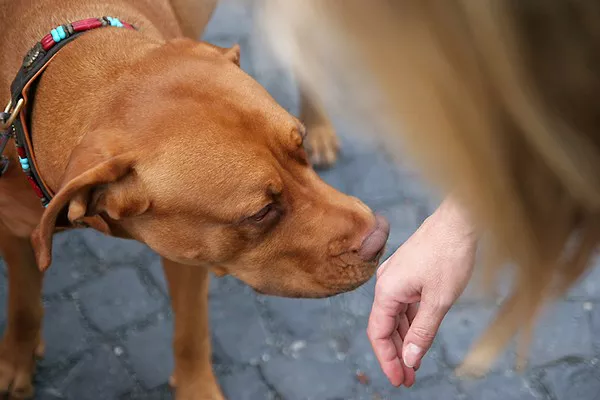Rabbits, with their charming personalities and delicate nature, make wonderful companions for pet owners worldwide. One key aspect of ensuring their well-being is maintaining a healthy appetite. A rabbit‘s diet plays a pivotal role in their overall health, and a diminished appetite can be a cause for concern. In this article, we will explore the various factors influencing a rabbit’s appetite and provide practical tips on how to increase it, ensuring your furry friend remains happy and healthy.
Understanding the Rabbit Diet
Before delving into strategies to boost appetite, it’s crucial to comprehend the basics of a rabbit’s diet. Rabbits are herbivores, primarily consuming hay, fresh vegetables, and a small amount of pellets. Understanding their nutritional needs is essential for promoting a healthy appetite.
1. High-Quality Hay: The Foundation of a Rabbit’s Diet
Hay is a fundamental component of a rabbit’s diet, providing essential fiber for digestive health. Opt for high-quality grass hay, such as timothy hay, orchard grass, or brome hay. Ensure that hay is available at all times, as it not only supports dental health but also encourages natural foraging behavior.
2. Fresh Vegetables: A Colorful Addition to the Plate
Introduce a variety of fresh vegetables to your rabbit’s diet, including leafy greens like kale, parsley, and romaine lettuce. These vegetables contribute to the rabbit’s overall nutrition and add an enticing variety to their meals. However, be cautious with the introduction of new foods, as sudden dietary changes can lead to digestive issues.
3. Pellets: Moderation is Key
While pellets are a convenient source of nutrition, they should be offered in moderation. Choose high-quality rabbit pellets, and ensure they make up only a small portion of the overall diet. Excessive pellet consumption can lead to obesity and may decrease interest in hay and fresh vegetables.
Factors Affecting Rabbit Appetite
Understanding the factors influencing a rabbit’s appetite is crucial for addressing any issues that may arise. Several factors can contribute to a diminished appetite in rabbits, ranging from health issues to environmental factors.
1. Dental Problems: A Common Culprit
Dental issues can significantly impact a rabbit’s ability to eat. Overgrown teeth or dental malocclusion can cause pain and discomfort, leading to a decreased appetite. Regular veterinary check-ups are essential to identify and address dental problems promptly.
2. Stress and Anxiety: Silent Appetite Suppressors
Rabbits are sensitive creatures, and stress or anxiety can affect their eating habits. Changes in environment, the introduction of new pets, or loud noises can contribute to stress. Providing a calm and secure environment is crucial for ensuring your rabbit feels safe and comfortable.
3. Illness and Disease: A Silent Threat
Underlying health issues, such as gastrointestinal problems or infections, can result in a decreased appetite. Regular veterinary care is essential to detect and treat any potential illnesses promptly. Monitoring your rabbit’s behavior and seeking medical attention for any sudden changes is crucial for their well-being.
Practical Tips to Increase Your Rabbit’s Appetite
Now that we have a comprehensive understanding of a rabbit’s diet and the factors affecting their appetite, let’s explore practical tips to boost their interest in food.
1. Introduce New Hay Varieties
Rabbits can be selective about their hay, and introducing new varieties can stimulate their interest. Rotate between different grass hays or try mixing in a small amount of alfalfa hay for added flavor. Experimenting with different textures and flavors can encourage your rabbit to consume more hay.
2. Fresh Vegetable Variety
Increase the variety of fresh vegetables in your rabbit’s diet. Experiment with different greens, herbs, and vegetables to provide a diverse range of flavors. However, introduce new vegetables gradually to avoid digestive upset, and monitor your rabbit’s response to each new addition.
3. Hay Dispensers and Foraging Toys
Encourage natural foraging behavior by using hay dispensers and foraging toys. These interactive devices not only make mealtime more engaging but also promote mental stimulation. By incorporating these tools, you can make the process of obtaining food a fun and stimulating activity for your rabbit.
4. Regular Exercise and Playtime
Physical activity is essential for a rabbit’s overall well-being. Ensure your rabbit has ample space to hop and play, promoting a healthy appetite. Engage in regular playtime and create a stimulating environment to keep your rabbit active and happy.
5. Maintain a Consistent Feeding Schedule
Establishing a consistent feeding schedule provides a sense of routine for your rabbit. Offer meals at the same time each day, creating a predictable eating pattern. This routine can help reduce stress and anxiety, contributing to a healthier appetite.
6. Veterinary Check-ups and Dental Care
Regular veterinary check-ups are crucial for identifying and addressing any health issues affecting your rabbit’s appetite. Dental problems, in particular, can be detected and treated early, ensuring your rabbit’s teeth remain healthy and their appetite is not compromised.
See Also:Do Wild Rabbits Consume Timothy Hay?
7. Provide a Safe and Comfortable Environment
Create a stress-free environment for your rabbit by minimizing loud noises, ensuring a comfortable living space, and avoiding sudden changes. Rabbits thrive in secure and peaceful surroundings, and a calm environment positively influences their appetite.
8. Social Interaction and Bonding
Rabbits are social animals that benefit from human interaction and companionship. Spend quality time with your rabbit, engaging in gentle petting and bonding activities. A strong bond with their owner can contribute to a sense of security and well-being, positively impacting their appetite.
Conclusion: Nurturing a Healthy Rabbit
Maintaining a healthy appetite in rabbits requires a holistic approach that considers their dietary needs, health, and environment. By understanding the factors influencing their appetite and implementing practical tips, you can ensure your rabbit leads a happy and fulfilling life. Regular veterinary care, a balanced diet, and a supportive living environment are key elements in nurturing the well-being of these charming and delicate companions. Remember, a well-fed and content rabbit is a joyful companion, bringing warmth and joy to your home.
Related Topics:
What Is in Medicated Rabbit Feed?
What to Feed Wild Cottontail Rabbits?
What Do Wild Cottontail Rabbits like to Eat?



























